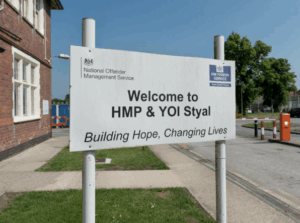The UK government announced today its intention to repeal the Strikes (Minimum Service Levels) Act 2023. The move, announced on Tuesday, August 6, aims to improve public services and strengthen workers’ rights by fostering better relations between employers and employees.

Deputy Prime Minister Angela Rayner and Business Secretary Jonathan Reynolds have taken the lead on this initiative, communicating the government’s stance to key departments affected by strikes, including Education, Health, Transport, the Home Office, and Energy, as well as the Welsh and Scottish governments. They have also reached out to metro mayors across the country to engage local employers in preparation for the upcoming changes.
The government has announced plans to repeal the controversial Strikes Act in response to the significant costs and disruptions caused by industrial action across various sectors. The decision comes as part of a broader effort to address underlying issues such as low pay, inequality, and discrimination. Last year alone, the NHS reportedly incurred £1.7 billion in costs due to strikes.
The government has shifted its stance, now emphasizing the importance of “strong but fair negotiation” between businesses, trade unions, and working people.
Government Response
Deputy Prime Minister Angela Rayner voiced strong criticism of the Strikes Act, stating, “Attempting to clamp down on the fundamental freedom of working people has got us nowhere and this was targeted at sectors who dedicate their lives to serving us all. That’s why we’re scrapping this pointless law and creating a new partnership between business, trade unions, and working people through our New Deal.
Business Secretary Jonathan Reynolds also condemned the Act, adding, “The Strikes Act has not worked—unbelievably, the UK has lost more days due to strike action than France, costing the taxpayer billions of pounds, and these divisive laws haven’t resolved a single strike since they were introduced.
A New Direction
The formal repeal of the Strikes Act will be included in the upcoming Employment Rights Bill, set to be introduced within the first 100 days of the new government. The administration stresses that no employer has yet used minimum service levels, and the legislation has only served to inflame tensions rather than resolve disputes.
Health and Social Care Secretary Wes Streeting pointed to the government’s recent success in negotiating with junior doctors. This Government engaged meaningfully with the BMA Junior Doctors’ Committee from day one and agreed on an offer in just over three weeks—paving the way to end strikes,” Streeting said.
Border Force Legislation
The Home Office has also confirmed that it is reaching out to the four Border Force trade unions to announce its intention to repeal the Minimum Service Level legislation and discontinue the use of border security minimum service levels (MSLs).
As the government moves forward with these plans, they are seeking to redefine the approach to industrial relations, prioritizing negotiation and partnership over-restrictive legislation.





































